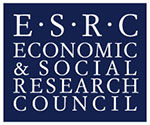
ESRC Seminar Series 2015-16
A whole kingdom, the whole globe itself, will become a gymnasium, in which every man exercises himself before the eyes of every other man. Every gesture, every turn of limb or feature, in those whose motions have a visible impact on the general happiness, will be noticed and marked down. (Bentham, 1834. p.101)
Aims
Since whistle-blower Edward Snowden’s revelations of 2013 we arguably live in a qualitatively and materially different techno-cultural period. Snowden revealed the surveillance activities of US and UK government signals intelligence agencies, catching unaware academic computer scientists, information specialists and privacy experts. Meanwhile, social media have normalized the practice of people watching each other by mediated means. Given this novel techno-cultural condition of increased, normalized and forced transparency, what are the academic responses? Building on Jeremy Bentham’s insights in Deontology (1834), we suggest that today, there are at least 3 forms of transparency:
- Liberal transparency – that opens up machinations of power for public and democratic inspection, using knowledge as a force for promoting societal net benefit and happiness;
- Radical transparency - that opens up both public processes and the private lives of citizens for inspection;
- Forced transparency – the negative consequences of radical transparency, where resistance to transparency is tantamount to guilt and where choice and autonomy are stripped away.
While we have begun a typology of transparency, the boundaries in practice are unclear. So is the extent, and consequences, of society’s move towards Bentham’s vision of radical transparency. We envisage expanding this typology while exploring cases where boundaries blur. Recognizing that privacy is a qualified right, our starting point is that transparency is not inherently dystopian. Rather, we aim to understand the implications and responses to how positively conceived norms might be perverted.
Our 2-year Seminar Series will explore, from multi-disciplinary/end user perspectives, how different aspects of transparency (whether voluntarily entered into, or state/commercially/peer-imposed) affect questions of privacy, security, sur/sous/veillance and trust. These areas have been chosen, as transparency violates privacy; is argued as necessary for security; indiscriminately mass surveills; and both demands and compromises trust.
To explore these topics, we will draw on perspectives from Journalism, Media, Sociology, Criminology, Law, Politics, International Relations, Intelligence, Business, History, Computer Science and Philosophy, and on end users from media, journalism, law, governing bodies, regulators, NGOs, business and security.
Seminars will be hosted in Bangor, Aberystwyth, Sheffield and London, and will be free to participants.

